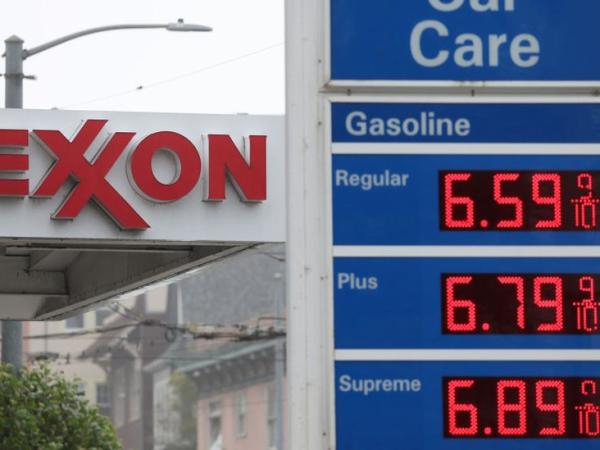Oil giants ExxonMobil and Shell reported this week posting record annual profits after energy prices soared last year following Russia’s invasion of Ukraine.
The American Exxon had profits of US$55.7 billion in 2022, while the British Shell reaped US$39.9 billion, at least double that of the previous year in both cases.
To put these figures in context, Nicaragua’s GDP is US$14 billion and that of Honduras or El Salvador is around US$28 billion.
Energy prices rose sharply in March last year after an invasion launched by Russian President Vladimir Putin raised supply concerns as Russia is a major producer of oil and gas on which Europe has depended.
The price of Brent crude reached almost US$130 per barrel in June, although it later fell until it now stands at pre-war values, around US$83.
The increase in the cost of hydrocarbons was reflected in increases in electricity bills and gasoline, but also in the prices of other consumer products in many countries, where inflation reached levels not seen in decades.
The White House on Tuesday called it “outrageous that Exxon has posted a new profit record after the American people were forced to pay such high prices at the pump amid Putin’s invasion.”
“The latest earnings reports make it clear that oil companies have everything they need, including record profits and thousands of unused but approved permits, to ramp up production, but instead choose to invest those profits in lining the pockets of executives and shareholders. said Abdullah Hasan, a White House spokesman.
Interviewed by CNBC, Exxon CEO Darren Woods said the White House should “get the facts straight,” noting that the company had continued to invest in oil and gas projects despite pressure from shareholders and other groups to shift to renewable energy.
“The countercyclical investments we made before and during the pandemic provided the energy and products people needed as economies began to recover,” the executive added in a statement.
Exxon reported that it increased investment by 38% last year and that in some key areas, such as Guyana and the Permian Basin, production increased by more than 30%, offsetting lost production due to divestments and changes in Russia, he added.
“Of course, our results clearly benefited from a favorable market, but our work began years ago to make the most of the underserved market,” Woods said on a conference call with investors.
In late 2022, Exxon sued the European Union over a new windfall tax that cost it $1.3 billion and has spoken out against similar proposals in the United States.
In Britain, the opposition called Shell’s profits “outrageous” and said the government of Conservative Rishi Sunak was letting oil companies “off the hook.”
Last year the UK government introduced a tax on corporate “windfall” profits to help finance its plan to reduce gas and electricity bills.
Shell had said it did not expect to pay any tax in the UK this year as it is allowed to deduct the costs of decommissioning North Sea oil rigs and investment in the country, but said on Thursday it would have to pay US$134m. for windfall gains in 2022 and that he estimates that figure will rise to more than $500 million by 2023.
Critics point out that the British oil company has been paying more to its shareholders than it spends on investments in renewables.
“No business should be making this kind of outrageous profit from Putin’s illegal invasion of Ukraine,” said British MP Ed Davey of the Liberal Democrats.
World oil production increased almost 3% in 2022, to 2,354 million barrels per day.
Remember that you can receive notifications from BBC Mundo. Download the new version of our app and activate them so you don’t miss out on our best content.

















